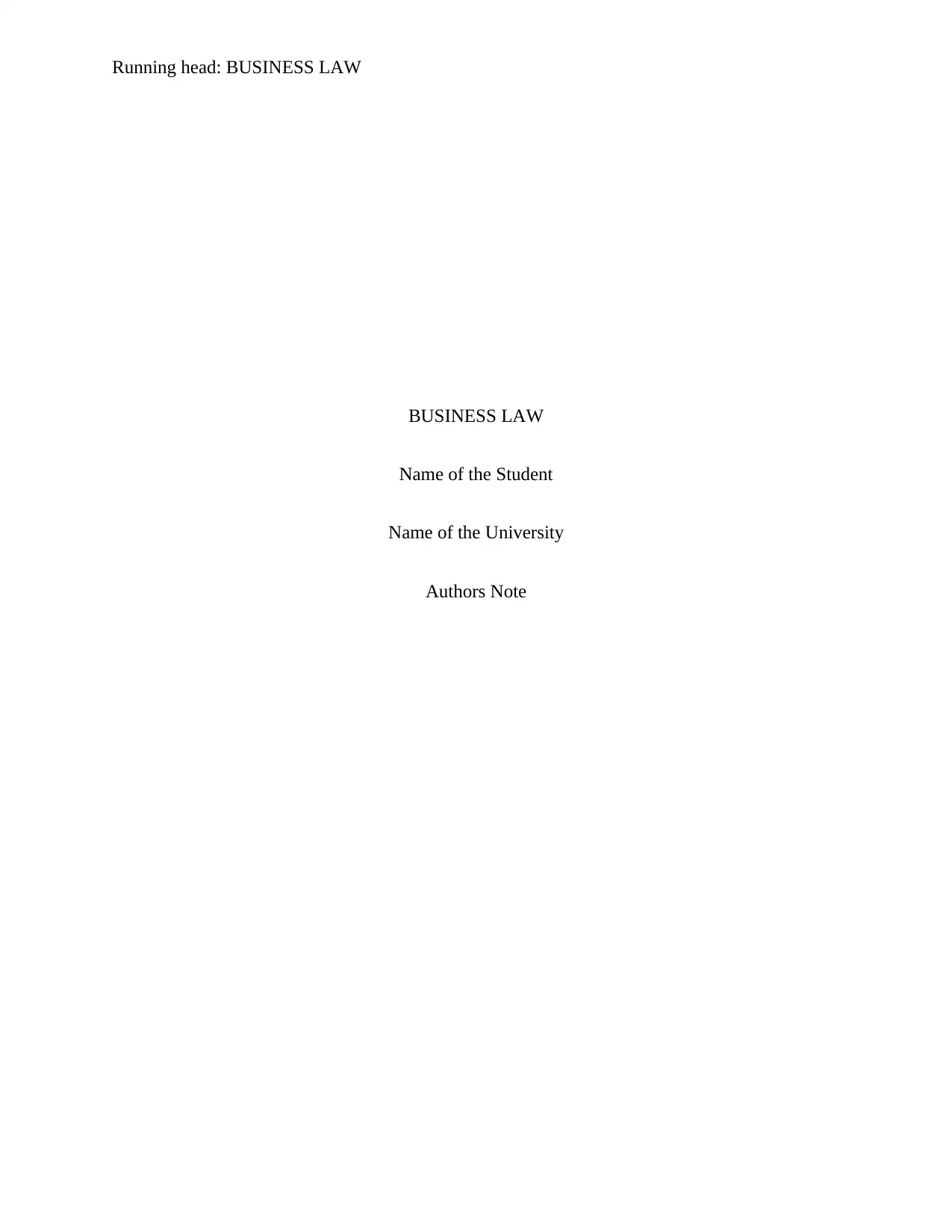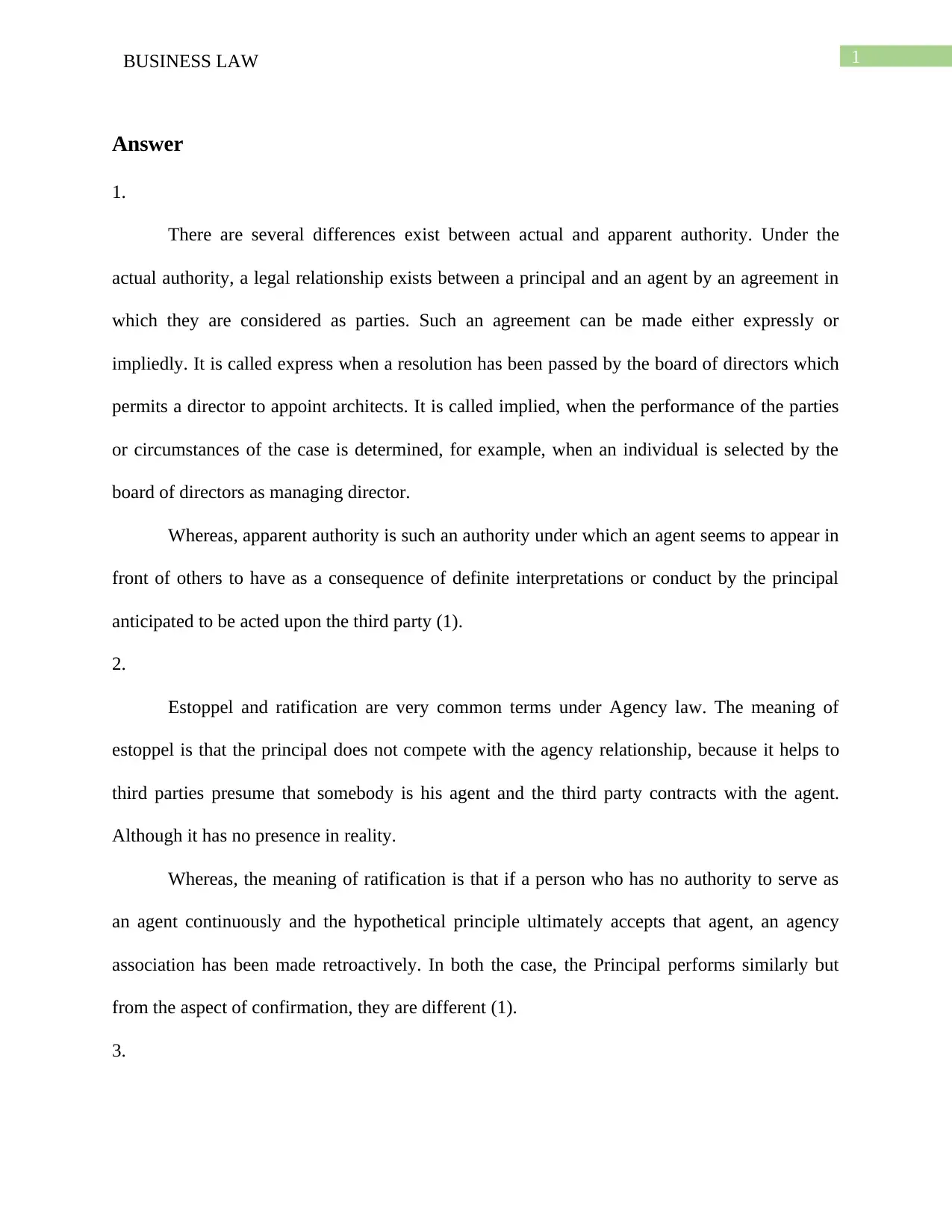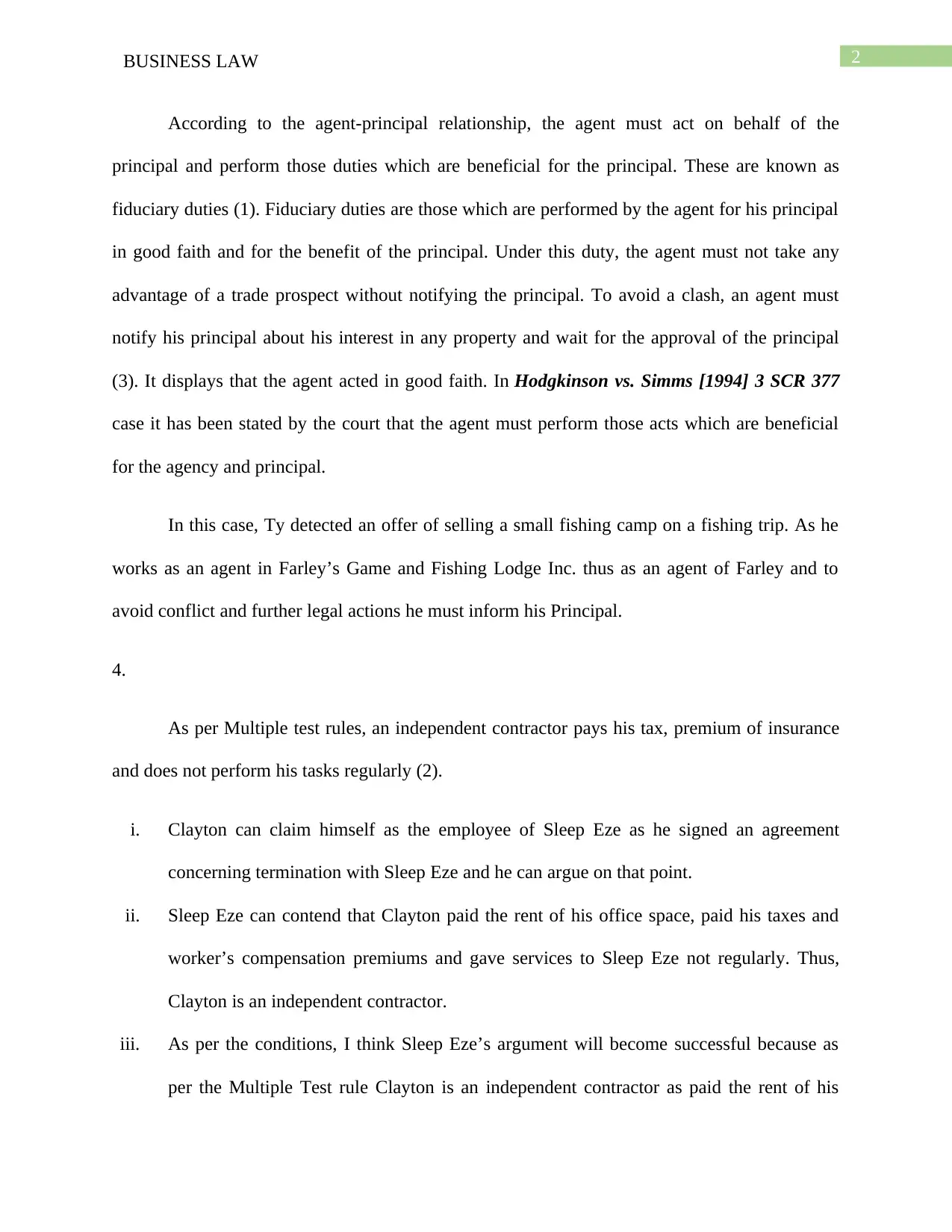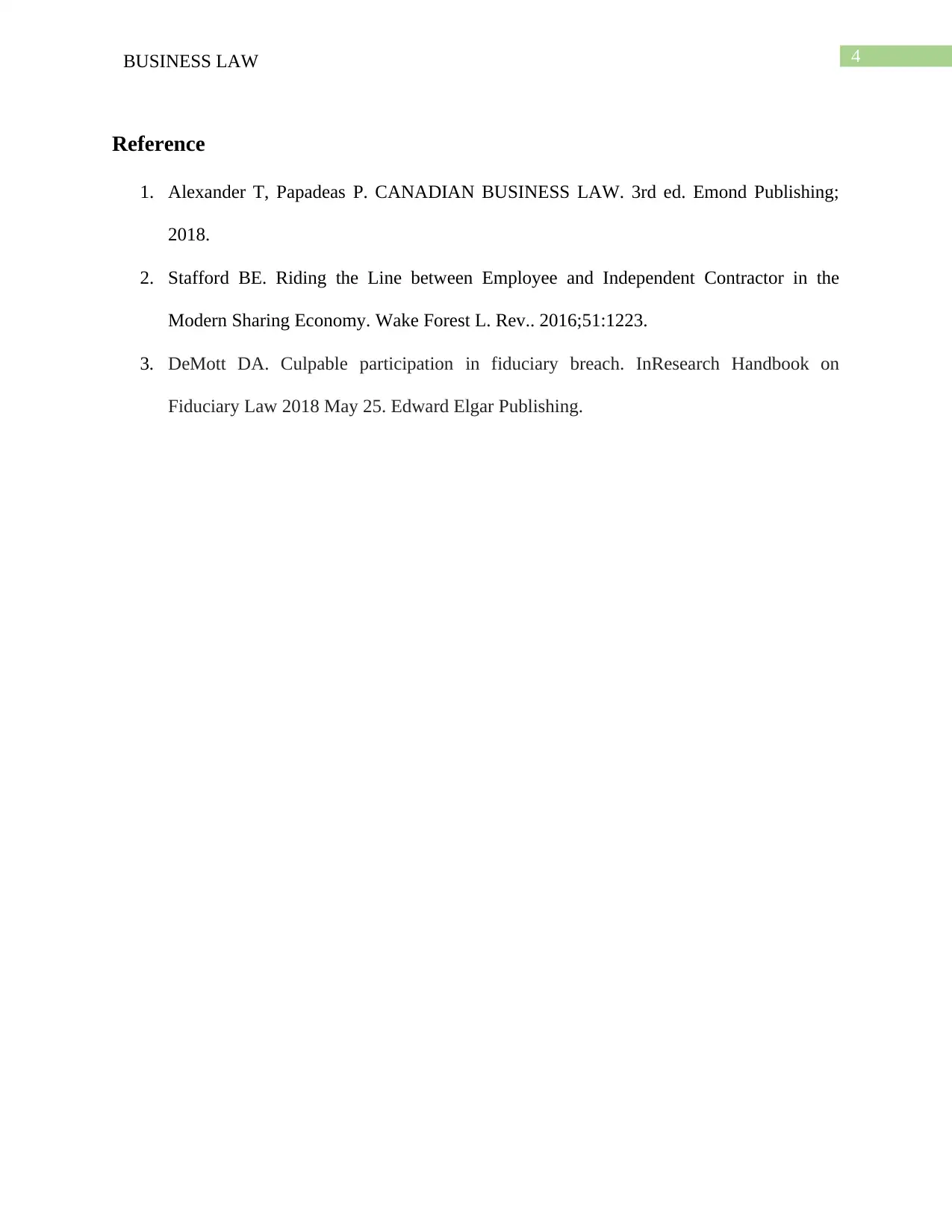Business Law Assignment - Business Law 4 - Agency Law Analysis
VerifiedAdded on 2022/09/12
|5
|721
|17
Homework Assignment
AI Summary
This document provides a comprehensive analysis of key concepts in business law, specifically focusing on agency law. The assignment addresses the differences between actual and apparent authority, explaining the legal relationships and agreements involved. It also clarifies the distinctions between agency by estoppel and agency by ratification, providing examples to illustrate these concepts. Furthermore, the assignment explores fiduciary duties within the agent-principal relationship, emphasizing the agent's responsibilities to act in good faith and prioritize the principal's interests. Finally, the document examines the classification of independent contractors, applying the multiple test rules to determine the employment status of an individual, providing arguments for both employee and independent contractor classifications. The assignment is supported by references to relevant legal texts and cases, providing a solid foundation for understanding agency law principles.
1 out of 5











![[object Object]](/_next/static/media/star-bottom.7253800d.svg)